|
|
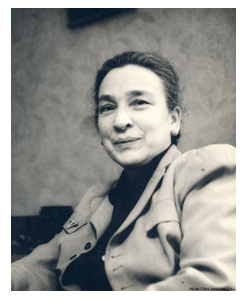 Ida
Pruitt, one of the major twentieth-century contributors to Sino-American
understanding, died on July 24,1985 in Philadelphia at the age of 94.
Through her work as well as through her writing and speaking, Miss Pruitt
interpreted and mediated between the Chinese and Americans as few others
have been in a position to do. Ida
Pruitt, one of the major twentieth-century contributors to Sino-American
understanding, died on July 24,1985 in Philadelphia at the age of 94.
Through her work as well as through her writing and speaking, Miss Pruitt
interpreted and mediated between the Chinese and Americans as few others
have been in a position to do.
Miss Pruitt’s unique role between China and the US. was a result
of. her bicultural upbringing. Daughter of Anna Seward Pruitt and C.W.
Pruitt, Southern Baptist missionaries to China, Ida was born in 1891 in
the coastal town of Penglai on the Shantung peninsula. Her girlhood, documented
in her autobiography, A China Childhood, was
spent in the small inland village of Sung-ch’iat’an, where
for many years the Pruitts were the only Western family.
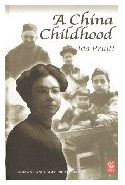
Ida’s early education was guided by her mother in their home. Thus,
Ida was immersed in the culture of a traditional Chinese village longer
than most missionary children. Her fluent Chinese was the “earth-
language” of the North China peasantry. Her attitudes, behavior,
and values were as much those of her Chinese amah who raised her as those
of the missionary community. Ida’s bicultural identity was rare
in turn-of-the-century China.
Throughout her life, Ida Pruitt tapped the Chinese part of her personality
to further and deepen understanding between China and the West. After
gaining experience in social casework by working for the Philadelphia
Society of Organizing Charity (the Family Society) from 1918 to 1919,
she was chosen by the Rockefeller Foundation in 1920 to establish the
Department of Medical Social Work at the new Peking Union Medical College
Hospital. As the Chief of Social Services from 1921 until 1939, she gave
the first western training to Chinese social workers. As a social worker,
Ida Pruitt recognized that all western-inspired efforts such as hers were
like “mending a rotten 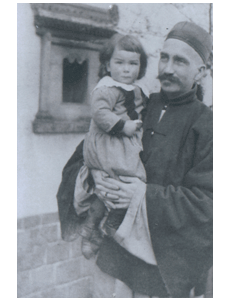 social
fabric.” She might help resolve the root problems in individual
lives but a social revolution was necessary to revive the Chinese nation,
she realized. Later, while living in Peking during the Japanese occupation,
she met Chinese Communists in the anti-Japanese underground, and recognized
that, whatever their failings, they were the true nationalists working
to reweave the social fabric. social
fabric.” She might help resolve the root problems in individual
lives but a social revolution was necessary to revive the Chinese nation,
she realized. Later, while living in Peking during the Japanese occupation,
she met Chinese Communists in the anti-Japanese underground, and recognized
that, whatever their failings, they were the true nationalists working
to reweave the social fabric.
Miss Pruitt’s role of mediating between East and West extended beyond
the gates of’ her hospital. Among Western scholars, students, government
officials, businessmen and ordinary travelers, Miss Pruitt was considered
to be the westerner closest to the Chinese people, and she was often consulted
in this capacity. Her home, a traditional Chinese compound, had an “open
door” which people of all races and nationalities entered. There
they could exchange views in an atmosphere of acceptance. After the Japanese
occupation of Peking in 1937, her home took on new significance as a safe
haven for members of the anti-Japanese underground.
As the Allies’ militatary assistance and relief poured ‘into
‘the areas of China controlled by Chiang K’ai-shek, Ida expressed
her skepticism of this form of’ aid which made China dependent on
western power.
1939 she accepted the position of American executive secretary of the
Chinese Industrial Cooperatives (Indusco). Indusco was an international
effort to help the Chinese resist the Japanese military invasion by creating
small, producers’ cooperatives. From 1939 until 1952 she was the
chief American spokesperson and fundraiser for Indusco. Through Indusco,
a partnership between Chinese and westerners as equals, she challenged
the prevailing notion of western aid as charity to the “Sick Man
of Asia.”
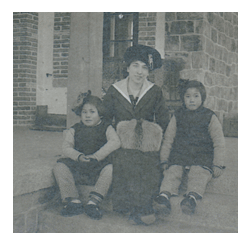
Ida Pruitt’s fundamental respect for the Chinese led to her early
support of’ the Chinese Communists struggling against the Japanese
military invasion as well as the western economic control of Chine.
After the establishment of the People’s Republic of China, Ida worked,
through her writing and speaking, towards normalizing diplomatic relations
between her two countries on the basis of equality and noninterference.
She was branded as “un-American,” a “Red,” during
the McCarthy era. Her passport was revoked in 1959 when the Chinese government
invited her to visit as an honored guest in recognition of her work and
her subsequent public support for the People’s Republic of China.
Advocating diplomatic relations with a Communist nation was radical in
1959. But Ida never saw it this way. With a vigorous shake of her head,
and a twinkle in her eyes, she would say, “I just love the Chinese
people.”
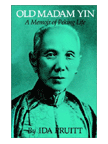 Perhaps Ida Pruitt’s most enduring contribution to Sino-American
understanding will be her two unique books about traditional Chinese women.
A Daughter of Han: The Autobiography of a Chinese
Working Woman, from the story told her by Ning Lao T’ai-t’ai,
is the product of many conversations over several years with a traditional
peasant woman. It is oral history and women’s history several decades
before the rise of either discipline. Old Madam Yin: A Memoir
of Peking Life, is a reflection of her longstanding friendship
with a member of the Chinese gentry. Ida Pruitt’s Chinese women
friends have tragedy and defeat in their lives, but also personal triumphs
and satisfactions. Old Lady Ning and Old Madam Yin are testimony to Ida
Pruitt’s confidence in the Chinese people.
Perhaps Ida Pruitt’s most enduring contribution to Sino-American
understanding will be her two unique books about traditional Chinese women.
A Daughter of Han: The Autobiography of a Chinese
Working Woman, from the story told her by Ning Lao T’ai-t’ai,
is the product of many conversations over several years with a traditional
peasant woman. It is oral history and women’s history several decades
before the rise of either discipline. Old Madam Yin: A Memoir
of Peking Life, is a reflection of her longstanding friendship
with a member of the Chinese gentry. Ida Pruitt’s Chinese women
friends have tragedy and defeat in their lives, but also personal triumphs
and satisfactions. Old Lady Ning and Old Madam Yin are testimony to Ida
Pruitt’s confidence in the Chinese people.
Ida Pruitt’s fundamental values transcended
patriotism and national self-interest. She could see no basis for international
relations other than mutual respect between equals based on understanding,
acceptance of differences, and awareness of ultimate similarities.
The above article, by Marjorie King, Ph.D.,
was originally published in the September 1986 issue of the periodical,
"Women of China"
|









